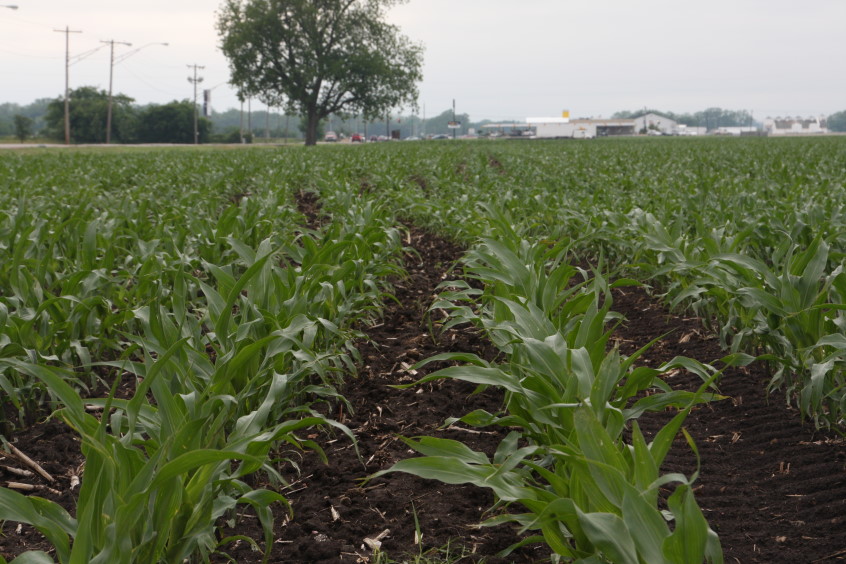
Agricultural News
Noble Foundation Researchers Make Strides in Improving Plant Digestibility
Fri, 16 Dec 2011 13:04:21 CST
 A recent breakthrough at The Samuel Roberts Noble Foundation holds the potential to produce plants that are more digestible for animals and better suited for biofuel production.
A recent breakthrough at The Samuel Roberts Noble Foundation holds the potential to produce plants that are more digestible for animals and better suited for biofuel production.
The discovery involves lignin, a compound present in all plants that helps provide strength to cell walls. Lignin can be described in many ways. It acts as the biological rebar of the plant, providing structure and support basically giving the plant the ability to stand upright. It also serves to line the plant's circulatory system (vascular tissue) that transports necessary chemicals throughout the plant.
However, lignin is tough for animals to digest. It also hinders access to the sugars inside the plant so they can be fermented to biofuels. For more than two decades, Noble Foundation Senior Vice President and Plant Biology Division Director Richard Dixon, D.Phil., has been researching ways to reduce lignin to improve plant digestibility.
There is just one problem. When lignin is reduced too much, negative impacts on the plant's growth result, decreasing the biomass. Therefore, applications of reduced lignin technology to date have only involved modest decreases in lignin content.
"We would like to reduce lignin more to develop even better forages and bioenergy crops, but then we have to contend with the problem of reduced biomass," Dixon said. "We cannot fully realize the benefit of the improved digestibility until we can reduce the lignin and maintain the biomass, but there is a commonly held belief that reduced growth is an unavoidable consequence of strongly reduced lignin."
Building on Dixon's decades of research, Noble Foundation scientists debunked that myth, opening up a new avenue to improving plants. Noble researchers sought a way to improve digestibility through decreased lignin while maintaining normal biomass.
Dixon, along with Noble researchers Lina Gallego-Giraldo, Luis Escamilla-Trevino and Lisa A. Jackson, observed that plants with low lignin possessed high levels of salicylic acid (a molecule that forms the basis of aspirin). The lower they decreased lignin content, the more the salicylic acid would increase, so they reasoned that salicylic acid impacted biomass (a theory bolstered by other plant science research).
The Noble researchers then took low lignin plants and crossed them with plants that were unable to produce salicylic acid. The offspring possessed low lignin, but no salicylic acid, and grew normally while maintaining enhanced digestibility.
This research, which was funded by the Oklahoma Bioenergy Center and the Department of Energy's Bioenergy Sciences Center (BESC), was recently published in Proceedings of the National Academy of Sciences, one of the world's most cited multidisciplinary scientific journals.
"This is a finding with important implications for forage improvement and biofuel technology," Dixon said. "It means we are closer to producing improved plants for farmers and ranchers, and it means easier conversion of plants into biofuels. However, this is still only a conceptual breakthrough because you don't want to generate plants without salicylic acid."
Salicylic acid plays an important role in disease resistance. Dixon's team is testing what they already suspect the new plants will probably not be able to withstand pathogens. Still the breakthrough is another necessary step in the scientific process to producing low lignin plants that still grow normally and can ward off diseases.
"Discoveries have to build on each other until you reach your ultimate goal," Dixon said. "We just have to take one more step, allowing salicylic acid to be made when necessary, but now blocking some step between salicylic acid and the resulting growth response. We'll get there. This discovery makes me know that we're close."
WebReadyTM Powered by WireReady® NSI
Top Agricultural News
More Headlines...




















